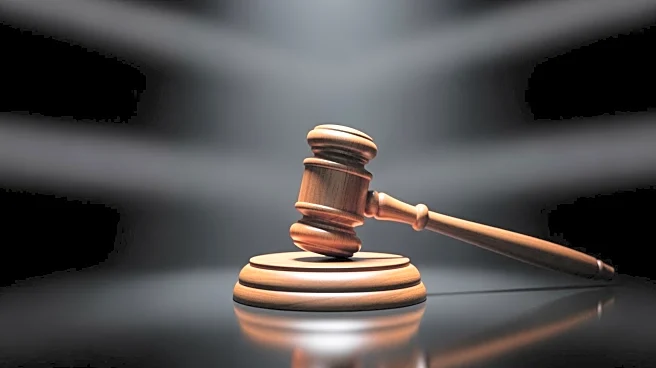What's Happening?
Senate Minority Leader Chuck Schumer is under increasing pressure to resign from his leadership position following a vote that saw eight members of his caucus siding with Republicans to end the longest
government shutdown in U.S. history. This vote has highlighted internal discontent within the Democratic Party, with calls for Schumer to make way for new leadership. Despite his efforts to propose a compromise, Schumer's leadership is being questioned, especially as his approval ratings have hit an all-time low. Prominent figures within the party, including Rep. Ro Khanna and Rep. Seth Moulton, have publicly criticized Schumer's effectiveness, suggesting that he should be replaced.
Why It's Important?
The pressure on Schumer to step down is significant as it reflects broader dissatisfaction within the Democratic Party regarding its leadership and strategic direction. The shutdown vote has exposed divisions within the party, potentially impacting its ability to present a united front on key issues such as healthcare. Schumer's leadership troubles come at a time when the party is experiencing a shift towards more progressive policies, and his potential ouster could pave the way for new voices and strategies. This internal conflict could affect the party's performance in upcoming elections and its ability to negotiate effectively with Republicans.
What's Next?
The Democratic Party is likely to continue facing internal debates over leadership and strategy, especially as the government shutdown resolution moves to the House. Schumer's future as Senate leader remains uncertain, with calls for new leadership growing louder. The party will need to address these internal divisions to maintain its influence and effectiveness in Congress. Additionally, the upcoming vote on healthcare subsidies in December will be a critical test for the party's ability to negotiate and secure key policy goals.
Beyond the Headlines
The situation raises questions about the Democratic Party's ability to adapt to changing political dynamics and the rise of progressive movements. Schumer's potential ouster could signal a shift towards more progressive leadership, impacting the party's policy priorities and approach to governance. This development also highlights the challenges of maintaining party unity in a polarized political environment.









